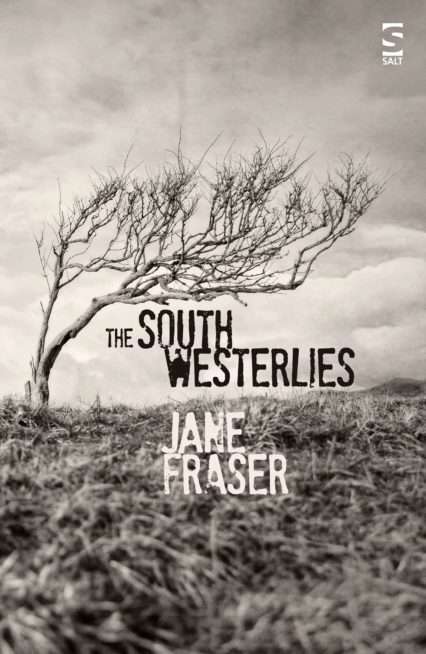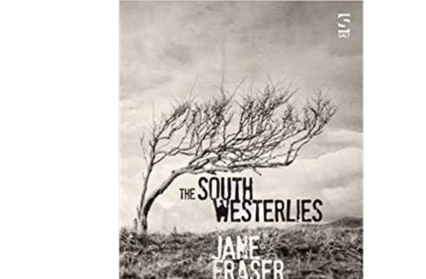Kathryn Tann reviews the debut short story collection from Jane Fraser, the Gower-inspired cycle, The South Westerlies.
The South Westerlies, Jane Fraser’s debut short story collection, moves with the wind and weather of the Gower peninsula. And to a reader unfamiliar with the land, or who has known it only as a cheerful holiday destination, it brings to the surface a different side to the Gower: a hidden darkness and oppressiveness, found in the shade, and felt by those who have lived there all their lives. The Gower is a place known to most as an ‘area of outstanding natural beauty’, as though this fact makes it impossible for misery to exist there. But as The South Westerlies attempts to demonstrate, living in a beautiful place does not always equate to happiness.

The first few stories – perhaps intentionally – rotate with the seasons, each one moving through the year and picking up where the last left off. And though this doesn’t continue throughout the whole collection, it is an example of how each story is bound to nature, and by a sense of place bound to one another. Language is used with great economy and care to evoke what is clearly a well-understood climate. We feel the autumn chill, are dampened by morning mist, and are blown through by the sharp south-westerly winds.
The first story strikes a good first impression. The quiet tragedy involves no death, no trauma, only the patience, hope, and kindness of a father, watched mournfully through the eyes of his disappointed child. The small family’s summer with their little boat is heart-warming and bitter, and as any well-crafted short story should, leaves its reader able to see how their lives might continue beyond the page. Fraser gives a lot using only a little, and it is this which gives her work its power.
Next is ‘A Passing Front’ – the unusual story of a man left by his wife, who’s fixation on dead flies as a simple yet troubling evasion of a reality he cannot face, is reminiscent of the Katherine Mansfield’s ‘The Fly’.
As with almost every volume of stories, there are stronger and weaker moments: characters to be forgotten and scenes which really stay with us. More broadly, Fraser does not always make full use of the potential power in the titles of her stories – to some this may not be so important, but it can also be said that, as with poetry, every word must hold its weight, and the title is an often unlocked part of that. Likewise, the bookending of a collection can be a powerful thing, however this one did not end (with its namesake story) with quite the same impressiveness that it began.
Nevertheless, Fraser’s collection swells and falls with the tide, offering very human insights into many different aspects of untold – but very much lived – narratives. Every reader will find truth at least somewhere in these stories, though all share the same rocky piece of coastal Wales. The tales cycle through failing marriages, tragic loss, lifetimes of quiet suffering and pivotal moments for both the young and the old. There is also hope in some of Jane’s writing, relief and escape – though it may be bitter and unconventional in some cases. ‘The Gower Explorer’ and ‘Everything Around Here is Turning to Rust’ both depict women – though at very different stages in their life – emerging from oppressive relationships which highlight hidden pockets of stagnant values. The former’s elderly protagonist is left widowed, knowing nothing else, completely unaccustomed to the idea of freedom, while the latter’s youth and lack of hope shows the reality of a life lived in the shadow of generational misogyny. ‘Gower born and Gower bred, Strong of arm and good in bed.’ The rhyme recited by her abusive husband is a reminder of the stubborn interiority of the place and the people it can produce. Fraser does offer more optimistic narratives, but the undercurrent of her writing is undoubtedly this idea of being tethered, in various ways, by place, tradition and circumstance.
The variation of voices in this collection is one of its greatest strengths – most notably the insistence that pivotal experiences can take place at any stage in life. This debut collection is not without its faults, but it paints the truth of those who may lead what we call ‘sheltered’ lives, but who are ultimately unsheltered from the bite of loss, the cruelty of life, and the never-ending onslaught of the Gower south-westerlies.
The South Westerlies by Jane Fraser is available now from Salt
Kathryn Tann is an editor at Parthian Books











